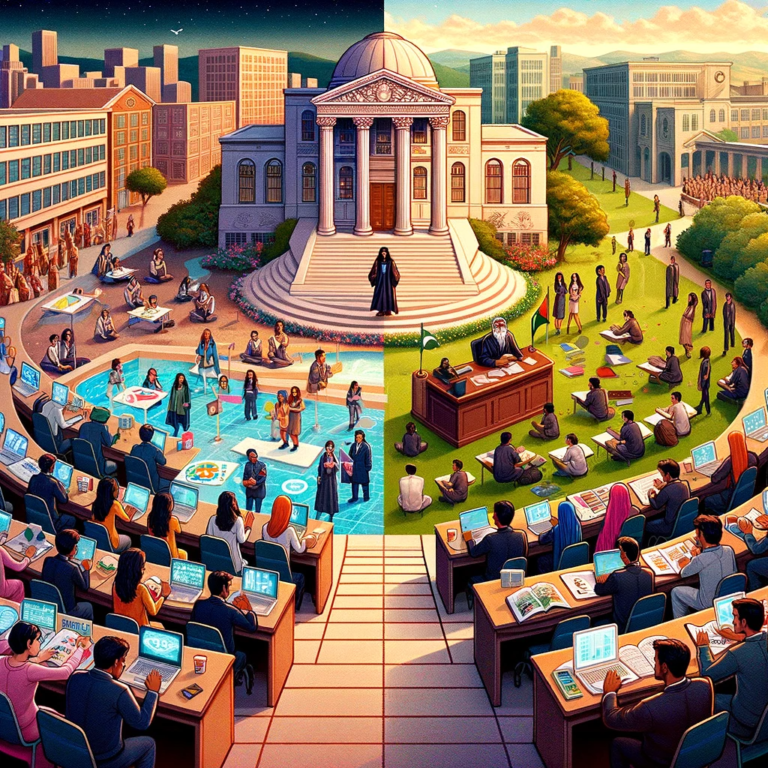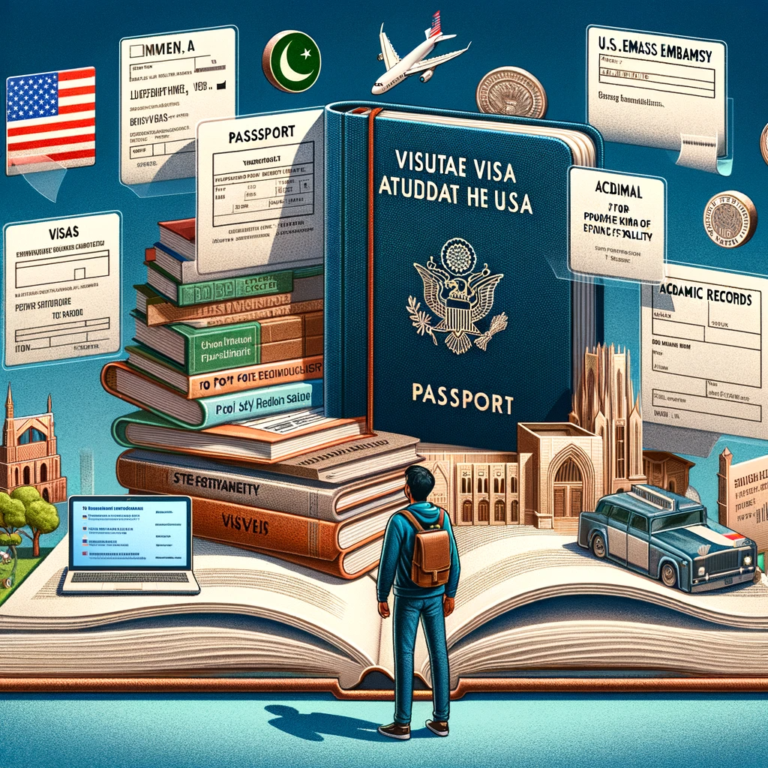What are the visa requirements for Pakistani students wishing to study in the USA,
prevalent in Pakistan, American education emphasizes critical thinking, participation, and continuous assessment.

Strategies for Adaptation:
- Engage Actively: Participate in class discussions and group projects to cultivate critical thinking and communication skills.
- Seek Feedback: Regularly consult with instructors during office hours to understand expectations and improve academic performance.
- Utilize Resources: Take advantage of academic resources such as writing centers, tutoring services, and libraries to aid in adapting to new teaching methods.
Language and Communication
Even for those proficient in English, the linguistic nuances, accent differences, and idiomatic expressions used in the USA can pose communication barriers. Academic language, in particular, may be more formal and complex than everyday English.
Strategies for Adaptation:
- Language Immersion: Engage in activities that require communication in English, such as joining clubs, participating in discussion groups, or volunteering.
- Academic Support: Utilize language support services offered by many universities, such as ESL classes or workshops on academic writing and speaking.
- Practice Regularly: Improve language skills by reading extensively, watching English-language media, and practicing speaking with native speakers.
Cultural Differences
Cultural differences can impact various aspects of academic life, from classroom dynamics to the student-teacher relationship. Pakistani students might find the informal interactions between students and faculty in the USA surprising, as well as the emphasis on individualism and personal opinion in academic work.
Strategies for Adaptation:
- Cultural Orientation: Participate in cultural orientation sessions offered by educational institutions to better understand American cultural norms and expectations.
- Open-mindedness: Maintain an open and adaptive mindset, ready to embrace and learn from the new cultural experiences.
- Cultural Exchange: Engage in cultural exchange activities to share your own culture and learn about others, fostering mutual understanding and respect.
Social Integration
Feeling isolated or struggling to integrate socially can affect academic performance and overall well-being. The difference in social norms, lifestyle, and even leisure activities can make it challenging for Pakistani students to form meaningful connections.
Strategies for Adaptation:
- Campus Involvement: Join student organizations, clubs, and sports teams to meet people with similar interests and build a support network.
- Community Engagement: Connect with the local or university-based Pakistani community, as well as other international student groups, for a sense of familiarity and shared experience.
- Social Skills Development: Attend workshops or seminars focused on developing social skills and understanding American social norms.
Academic Integrity and Plagiarism
Understanding and adhering to the strict standards of academic integrity practiced in U.S. institutions can be daunting. The concepts of plagiarism and citation might be different from what Pakistani students are accustomed to.
Strategies for Adaptation:
- Educational Workshops: Attend workshops or online courses on academic integrity, plagiarism, and proper citation to understand the expectations clearly.
- Utilize Citation Tools: Use citation management tools and software to help ensure proper referencing of sources in academic work.
- Consult Instructors: When in doubt, consult with instructors or academic advisors about what constitutes plagiarism and how to avoid it.
Financial Management
The cost of education in the USA can be significantly higher than in Pakistan, and managing finances can become a substantial challenge, especially with the added costs of living abroad.
Strategies for Adaptation:
- Budgeting: Develop a comprehensive budget that includes tuition, living expenses, health insurance, and emergency funds.
- Financial Aid: Explore scholarships, grants, and work-study programs available to international students to help mitigate costs.
- Part-time Employment: Consider part-time work opportunities, either on-campus or off-campus, if allowed by your visa status, to support living expenses.
Conclusion
Adapting to the academic culture in the USA is a multifaceted challenge for Pakistani students, encompassing educational, linguistic, cultural, social, and financial aspects. By actively engaging with the academic community, utilizing available resources, and maintaining an open and adaptable mindset, Pakistani students can overcome these challenges. The key lies in understanding the differences, respecting the new culture, and finding a balance between maintaining one’s cultural identity and embracing new experiences. With determination and support, Pakistani students can not only adapt but also thrive and succeed in the American academic environment, turning challenges into opportunities for growth and learning.


